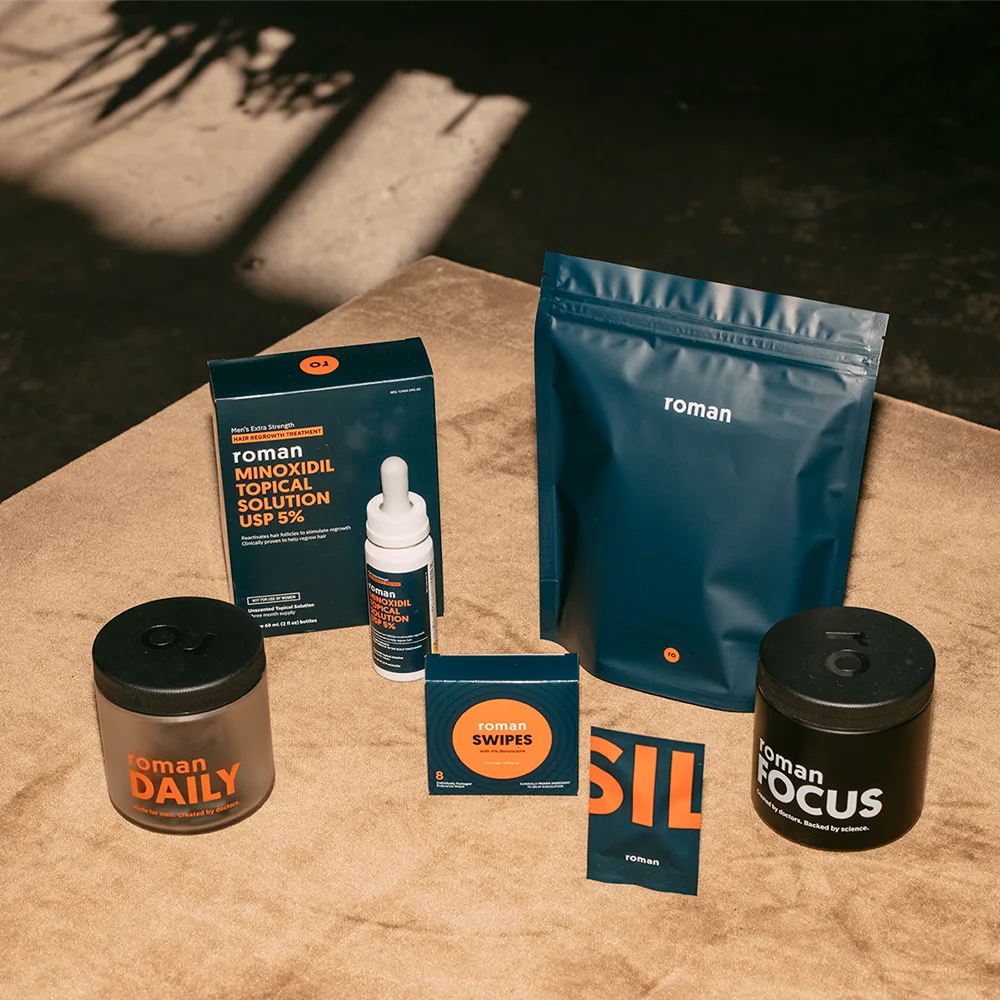Here's what we'll cover
Here's what we'll cover
Here's what we'll cover
The fleeting moment after you suddenly wake up from a nightmare can be intense. Maybe you were being chased or felt like you were falling. It can take a few seconds to realize it was just a dream. Bad dreams can be vivid and realistic and can leave you feeling distracted or unsettled throughout your day. As John Lennon from The Beatles once said, “Who’s to say that dreams and nightmares aren’t as real as the here and now?”
If you’ve been taking a melatonin supplement to help you sleep and you’ve noticed that you’re having more weird dreams or nightmares, it may not be a coincidence. Read on to learn more about the connection between melatonin and dreams.
What is melatonin?
Melatonin is naturally made in your brain and is often called the “sleep hormone.” It helps regulate your circadian rhythm, otherwise known as the body’s sleep-wake cycle (Savage, 2021).
The brain releases melatonin into the bloodstream in a daily pattern that typically starts in the evening when light starts to dim. The level of melatonin in your body peaks when you’re asleep. However, being exposed to bright light or blue light (i.e., from a phone screen) can slow down or block the body’s release of melatonin (Masters, 2014; Wahl, 2019).
Melatonin is available over-the-counter as a dietary supplement. It contains synthetic (lab-created) melatonin and is a popular natural sleep aid because it’s generally safe and carries a low risk of unpleasant side effects. People use it to help with things like jet lag or insomnia. Most studies of melatonin for sleep disorders have used dosages ranging from 0.1 mg to 5 mg per day (Ferracioli-Oda, 2013; Costello, 2014; Savage, 2021).
It is important to note that melatonin is not regulated or approved by the Food and Drug Administration (FDA) because it is a dietary supplement, and the FDA states that dietary supplements “are not intended to treat, diagnose, prevent, or cure diseases” (FDA, 2020).
Does melatonin cause vivid dreams or nightmares?
Nightmares are common. According to estimates, around 85% of adults have at least one a year. And 4–10% of people have a nightmare weekly, possibly linked to increased stress, among other factors (Levin, 2007). No one knows for sure what causes dreams and nightmares or if taking certain medicines can make them more vivid or weird than usual (Thompson, 1999).
Some people report that one such factor is taking sleep aids like melatonin. Although rare, some reports link melatonin use to bizarre dreams and nightmares. An analysis of clinical studies of melatonin supplements lists nightmares as a less common but serious side effect (Besag, 2019).
Why does melatonin cause (weird) dreams?
One potential explanation for “melatonin dreams” is that the supplement is doing what it’s intended to do—helping you spend more time asleep. Studies show that melatonin supplements can help people fall asleep slightly sooner and get better quality sleep than people who take a placebo. (A placebo is a treatment that contains no active ingredient.) So, getting more sleep than usual may unlock the door to dreamland (i.e., the “dreaming stage” of sleep) (Ferracioli-Oda, 2013; Besag, 2019).
As your body sleeps, your mind stays busy. Your brain goes through cycles of five different stages ranging from light to deep sleep and dreaming. Vivid dreams mainly occur during the stage of sleep called rapid eye movement (REM) sleep—the random, darting eye movements that happen behind your closed eyelids during this dreaming stage of sleep. REM sleep usually starts about 90 minutes after you fall asleep and lasts for about 10 minutes. With each subsequent sleep cycle, the REM stage gets longer as the night goes on, giving you more opportunities to dream as morning approaches (Patel, 2021; Nayak, 2021).
Research shows that melatonin supplementation can increase the time spent in REM sleep. In 2004, a study tested melatonin (3 mg) versus placebo in adults with sleep disorders every evening for four weeks. People who took melatonin spent significantly more time in REM sleep on average (Kunz, 2004).
Can melatonin cause other side effects?
When melatonin is taken correctly—that is, according to the supplement’s product label and in the typical dosage range of 0.1 mg to 5 mg—it’s generally considered a safe, natural sleep aid. It does not usually cause severe side effects (Savage, 2021).
The more common side effects of melatonin, especially in high doses, include (Savage, 2021; Besag, 2019):
Drowsiness
Next day sleepiness
Headache
Nausea
Dizziness
Less common side effects of melatonin supplements include reduced body temperature, agitation, fatigue, mood swings, nightmares, skin irritation, and palpitations (Besag, 2019).
There is not a lot of research data on the adverse effects of melatonin supplements. But, in general, any side effects seem to be temporary and tend to go away on their own, either within a few days of continuing to take the supplement or immediately after stopping it. Intense dreams or nightmares can bother you and disrupt your ability to get a good night’s sleep. If this happens to you, consider trying a lower dose or stopping the melatonin supplement altogether (Besag, 2019).
When to talk to a healthcare professional
If you’re having intense nightmares that bother you after taking melatonin, consider trying other strategies to improve your sleep. Take a look at your daily routines to see if there are areas for improvement. For example, you could try limiting your caffeine intake to just one serving in the morning. In many cases, sleep hygiene habits can make a big difference.
If trouble sleeping or disturbing nightmares continue to bother you after stopping melatonin, talk with a healthcare professional. They can offer you personalized medical advice based on your unique health history. They may also suggest that you speak to a mental health expert or therapist to work through any issues that may be related.
DISCLAIMER
If you have any medical questions or concerns, please talk to your healthcare provider. The articles on Health Guide are underpinned by peer-reviewed research and information drawn from medical societies and governmental agencies. However, they are not a substitute for professional medical advice, diagnosis, or treatment.
References
Besag, F., Vasey, M. J., Lao, K., & Wong, I. (2019). Adverse events associated with melatonin for the treatment of primary or secondary sleep disorders: a systematic review. CNS Drugs, 33(12), 1167–1186. doi: 10.1007/s40263-019-00680-w. Retrieved from https://pubmed.ncbi.nlm.nih.gov/31722088/
Costello, R. B., Lentino, C. V., Boyd, C. C., O’Connell, M. L., Crawford, C. C., Sprengel, M. L., et al. (2014). The effectiveness of melatonin for promoting healthy sleep: a rapid evidence assessment of the literature. Nutrition Journal, 13, 106. doi: 10.1186/1475-2891-13-106. Retrieved from https://www.ncbi.nlm.nih.gov/pmc/articles/PMC4273450/
Ferracioli-Oda, E., Qawasmi, A., & Bloch, M. H. (2013). Meta-analysis: melatonin for the treatment of primary sleep disorders. PLoS One, 8(5), e63773. doi: 10.1371/journal.pone.0063773. Retrieved from https://www.ncbi.nlm.nih.gov/pmc/articles/PMC3656905/
Food and Drug Administration (FDA). (2020). Dietary supplement products & ingredients. Retrieved September 22, 2021 from https://www.fda.gov/food/dietary-supplements/dietary-supplement-products-ingredients#alerts
Kunz, D., Mahlberg, R., Müller, C., Tilmann, A., & Bes, F. (2004). Melatonin in patients with reduced REM sleep duration: two randomized controlled trials. Journal of Clinical Endocrinology and Metabolism, 89(1), 128–134. doi: 10.1210/jc.2002-021057. Retrieved from https://pubmed.ncbi.nlm.nih.gov/14715839/
Levin, R. & Nielsen, T. A. (2007). Disturbed dreaming, posttraumatic stress disorder, and affect distress: a review and neurocognitive model. Psychological Bulletin, 133(3), 482–528. doi: 10.1037/0033-2909.133.3.482. Retrieved from https://pubmed.ncbi.nlm.nih.gov/17469988/
Masters, A., Pandi-Perumal, S. R., Seixas, A., Girardin, J. L., & McFarlane, S. I. (2014). Melatonin, the hormone of darkness: from sleep promotion to ebola treatment. Brain Disorders & Therapy, 4(1), 1000151. doi: 10.4172/2168-975X.1000151. Retrieved from https://www.ncbi.nlm.nih.gov/pmc/articles/PMC4334454/
Nayak, C. S., & Anilkumar, A. C. (2021). EEG normal sleep. [Updated Jul 26, 2021]. In: StatPearls [Internet]. Retrieved from https://www.ncbi.nlm.nih.gov/books/NBK537023/
Patel, A. K., Reddy, V., & Araujo, J. F. (2021). Physiology, sleep stages. [Updated Aug 22, 2021]. In: StatPearls [Internet]. Retrieved from https://www.ncbi.nlm.nih.gov/books/NBK526132/
Savage, R. A., Zafar, N., Yohannan, S., & Miller, J. M. (2021). Melatonin. [Updated Aug 15, 2021]. In: StatPearls [Internet]. Retrieved from https://www.ncbi.nlm.nih.gov/books/NBK534823/
Thompson, D. F., & Pierce, D. R. (1999). Drug-induced nightmares. The Annals of Pharmacotherapy, 33(1), 93–98. doi: 10.1345/aph.18150. Retrieved from https://pubmed.ncbi.nlm.nih.gov/9972389/
Wahl, S., Engelhardt, M., Schaupp, P., Lappe, C., & Ivanov, I. V. (2019). The inner clock-Blue light sets the human rhythm. Journal of Biophotonics, 12(12), e201900102. doi: 10.1002/jbio.201900102. Retrieved from https://www.ncbi.nlm.nih.gov/pmc/articles/PMC7065627/








